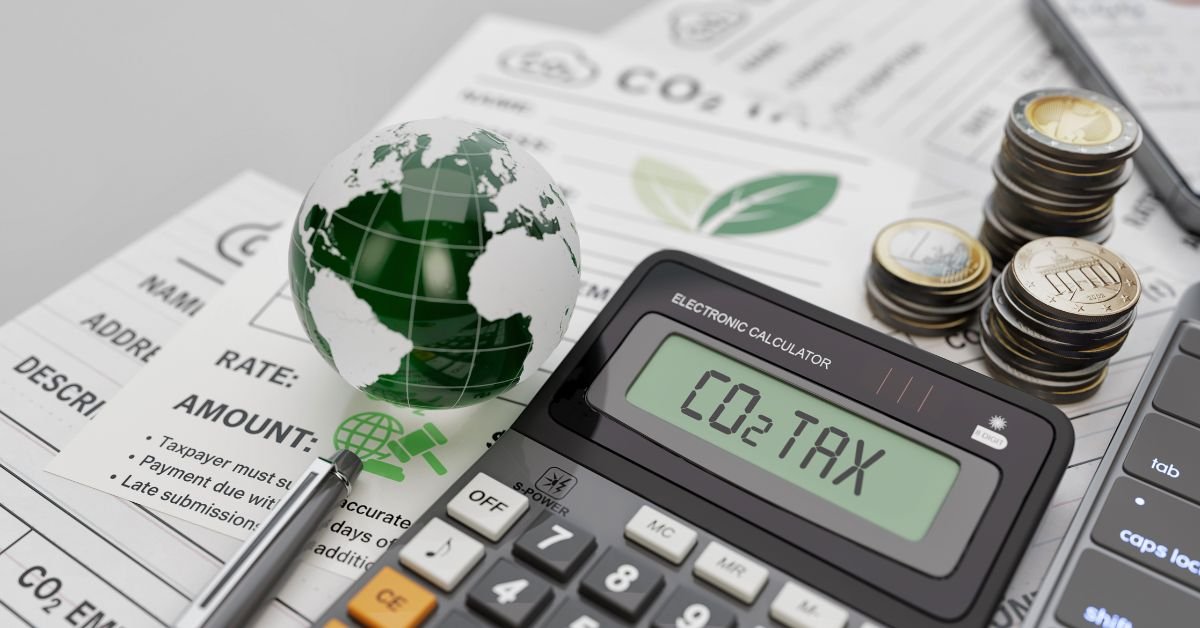ESG Tax Deduction Malaysia: Up to RM50,000 for ESG Initiatives – Malaysian companies can now claim up to RM50,000 per year in tax deductions for qualifying ESG (Environmental, Social, and Governance) expenses. The government officially gazetted this policy under the Income Tax (Deduction for Expenditure in Relation to Environmental Preservation, Social and Governance) Rules 2025 [P.U. (A) 193], which applies from the Year of Assessment (YA) 2024 until 2027.
What is the ESG Tax Deduction Malaysia?
The ESG Tax deduction Malaysia is a targeted incentive that allows eligible businesses in Malaysia to deduct up to RM50,000 of ESG-related expenditures from their taxable income each year. This is part of the government’s commitment to making sustainability a business priority, not just a compliance checkbox.
This initiative was first introduced during the 2024 Budget tabling and formalised in June 2025. The idea is simple: if you invest in activities that improve your company’s sustainability reporting, carbon tracking, or tax governance framework, the government wants to ease your financial burden.
If you want more foundational insights on ESG’s broader implications, consider reading our article “A Deep Dive into ESG and Environmental Sustainability in Malaysia “, which explores the wider context of these policies within the nation’s sustainability agenda.
What Are ESG Taxes?
In this context, “ESG taxes” are not new taxes. Rather, we’re talking about tax deductions for ESG-related spending. There is no separate ESG tax in Malaysia, and the term can be misleading. The ESG tax deduction in Malaysia encourages companies to incorporate environmental, social, and governance practices into their operations by offering tax relief on related expenses.
This is not the same as a carbon tax. Carbon taxes are levied on companies based on their greenhouse gas (GHG) emissions. Malaysia has not yet implemented a nationwide carbon tax, although it’s under consideration as part of its long-term climate strategy.
If you want to understand the latest ESG regulatory landscape, don’t miss “Bursa Malaysia Updates ESG Reporting Requirements “for the latest compliance mandates affecting public-listed companies.
Who Can Claim This Deduction?
To qualify, the business must be tax-resident in Malaysia, and the ESG expense must be incurred while generating business income.
Eligible entities include:
- Licensed financial institutions
- Companies and Labuan companies
- Micro, Small, and Medium Enterprises (MSMEs)
These categories cover a wide spectrum of Malaysian businesses, including regulated financial institutions (under Bank Negara or relevant Acts), Bursa-listed companies, and SMEs as defined by the National SME Development Council.
For guidance tailored to different business sizes and sectors, see our “A Business Guide to ESG Requirements in Malaysia,” covering the spectrum from MSMEs to listed firms.
What Kind of ESG Activities Are Eligible?
This is where it gets specific. Not all ESG efforts qualify. Only prescribed categories of expenses are deductible under the Rules. These are divided by entity type:
1. Financial Institutions & Public-Listed Companies:
- Verification and certification of ESG practices and GHG emissions
- Subscriptions to ESG software or data systems
- ESG training, staff capacity-building
- Fees for ESG consultants or technical experts
2. Companies & Labuan Entities:
- Preparation of Tax Corporate Governance Framework (TCGF) reports
- Engagement of independent reviewers for TCGF compliance
- Preparation of contemporaneous Transfer Pricing documentation
3. MSMEs:
- Consultation fees for e-invoicing software development
- Fees for external providers to implement e-invoicing (excluding MyInvois-related or planning-stage expenses)
This deduction is not a catch-all for general ESG efforts. If your company runs a tree-planting CSR campaign or publishes a sustainability-themed video, that doesn’t automatically qualify. The expenses must fall into the approved categories and directly relate to reporting, tracking, compliance, or specific governance efforts.
If you’re exploring how ESG practices can align with business growth, our article “Understanding ESG Strategy to Add Value for Your Business Growth “offers actionable insights.
How to Apply for the ESG Tax Deduction in Malaysia
Applying for the ESG tax deduction isn’t complex, but it does require planning, documentation, and strategic alignment with the allowable expenditure categories. Here’s a more detailed look at how your business can navigate this process effectively:
1. Identify Eligible Activities
Start by reviewing your company’s current or planned ESG-related activities. Focus specifically on expenses related to reporting, certification, training, software, consultancy, tax governance documentation, or e-invoicing (depending on your entity type).
2. Match the Expenses to the Deduction Categories
Refer to the ESG Rules 2025 and verify that your expenses fall within the allowed categories. For example, subscribing to ESG data platforms or hiring ESG consultants is eligible, but running a general CSR event is not.
3. Document Everything Clearly
You must be able to substantiate the ESG-related expenses you intend to deduct. Keep a well-organised record of:
- Invoices from ESG consultants or service providers
- Subscription agreements for ESG-related software
- Certificates from ESG verifiers
- Proof of payment and engagement letters
- Reports prepared under the Tax Corporate Governance Framework
Ensure these documents are easily traceable and matched to the YA in which the expenses were incurred.
4. Ensure Proper Internal Review
Appointing an independent reviewer is a deduction requirement, especially for companies and Labuan entities preparing tax governance or transfer pricing documentation. Don’t overlook this step, or your claim may be disqualified.
5. Declare the Deduction in Your Tax Return
Once verified, declare the eligible ESG deduction in your company’s annual income tax return. Ensure your tax agent is fully informed about the ESG Rules 2025 to avoid unintentional errors or missed claims.
6. Amending Filed Returns (If Needed)
If your company has already submitted its YA 2024 tax return before 23 June 2025 (the gazette date of the ESG Rules), you can still revise your return under Section 131A of the Income Tax Act. You have up to five years from the end of 2025 to do this, which means the deadline is 31 December 2030.
When filing an amendment, clearly indicate that the revision is to reflect eligible ESG deductions under P.U. (A) 193 and include the necessary documentation as supporting evidence.
7. Consider a Pre-Filing ESG Expense Review
Given the narrow scope and strict documentation requirements, it’s advisable to conduct a pre-filing ESG expense review—especially if your business is making substantial ESG-related investments. This helps maximise your claim while reducing the risk of audit issues.
This isn’t a checkbox process—it’s a financial opportunity. Treat the ESG deduction process with the same diligence as any major capital allowance or tax relief.
Want to explore linking ESG strategy to reporting more deeply? Our guide, “How to Design an ESG Report That Actually Gets Read, “provides practical steps for effective and engaging ESG disclosures.
What This Means for Malaysian Companies
The government is institutionalising ESG, signalling that it isn’t a voluntary trend but an expectation. By making compliance more affordable, the ESG Tax Deduction turns sustainability from a cost centre into a strategic lever.
For many businesses, ESG has often been reactive, responding to investor pressure or regulatory changes. With tax incentives like this, ESG can now be integrated more proactively, backed by a budget, and aligned with financial planning.
ESG Deductions: More Than Just Compliance
By institutionalising the ESG deduction, the government signals that ESG is an expectation, not a trend. These incentives transform ESG from a mere compliance aspect into a strategic and financial value source.
If you are new to ESG or need help integrating its principles, “3 Critical Factors To Mind When Integrating ESG Principles “highlights the most common stumbling blocks and how to avoid them.
Why ESG Tax Planning Matters
ESG compliance is no longer just about public image. It’s about risk management, access to capital, and even supply chain eligibility. More investors and international clients are demanding transparency. Some will not engage with companies that cannot demonstrate GHG tracking or ethical governance.
The ESG Tax Deduction is a financial lever to kickstart this transformation. Understanding how to tap into it means your ESG plan isn’t just strategic; it’s cost-efficient.
If you’re weighing which frameworks best suit your business, our article “6 ESG Frameworks to Know: Which One is Right For You? “compares the relevant ESG standards for Malaysian companies.
Social issues are also integral to ESG compliance. For practical methods to address the ‘S’ in ESG, see “The S in ESG: A Guide to Measure and Track Social Issues in ESG “.
Staying Ahead on ESG Trends
Malaysia’s ESG investing landscape is evolving rapidly. To look at current shifts and future opportunities, see “Rising ESG Investing Trends and Opportunities in Malaysia.”
Our Recommendation
If your business is already spending on ESG reporting, GHG tracking, or preparing for e-invoicing, map those expenses against the allowed deduction categories. You might already be eligible.
If you’re unsure where to begin, consider engaging ESG consultants who understand the technical and tax sides. Not only can they guide your sustainability efforts, they can ensure your claims are well-documented and compliant.
Most importantly, don’t wait until 2027 to take action. These incentives have a shelf life. Use them while they’re available, and use them well. AsiaESG’s ESG experts can help you navigate this opportunity. Our consultants can assess your ESG activities, match them against claimable categories, and support the documentation needed to secure your tax deductions.
For any enquiries or quotations pertaining to ESG Solutions, get in touch with our ESG Solutions department below:




